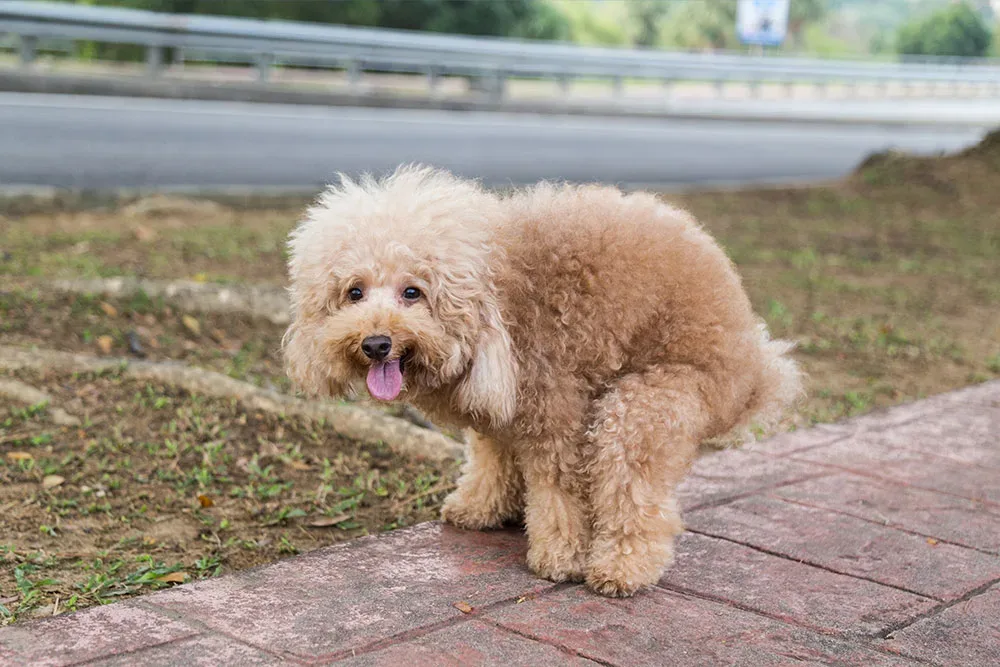When you scoop your dog poop and see jelly-like mucus, it can be alarming. You may be wondering what this means for your pet’s health.
Jelly mucus in dog poop can be caused by a number of things, some of which are serious and require treatment. Knowing the cause of the jelly mucus is essential for getting your pet the right care.
Also Read: 5 Simple Tricks to Stop Aggressive Puppy Biting
In some cases, jelly mucus in dog poop may be a sign of a serious health problem. By understanding the significance of this mucus, pet owners can better care for their dogs and address any health concerns.
What jelly substances or mucus in dog poop means
There are several jelly substances or mucus in dog poop that can indicate different health issues with your pet.
In most cases, this is a sign that there is something wrong with your pet’s health.
One such issue could be pancreatitis, which is a serious inflammation of the pancreas. If your dog is suffering from this condition, it will likely have a very loose stool that may also be jelly-like or mucus-filled.
Other possible causes of jelly substances or mucus in dog poop include intestinal parasites, food allergies, cancer, and liver disease.
Are small amounts of jelly mucus in a dog’s poop normal?
A small amount of jelly mucus in a dog’s poop is usually nothing to worry about, but sometimes it can be a sign of a more serious problem. If the mucus is accompanied by other symptoms, such as diarrhea, vomiting, or loss of appetite, then it’s best to take the dog to the vet.
Dogs naturally have some mucus in their stool, but if there is an excessive amount, it could be a sign of a health problem. There are several things that can cause jelly mucus in a dog’s stool, including parasites, bacterial infections, and liver disease.
What causes jelly-like mucus in dog poop?
Mucus is a slimy, jelly-like substance that is produced by the body to lubricate and protect tissues. It can be found in many different places in the body, including the nose, throat, and lungs. In dogs, mucus is often present in their poop. But what causes this jelly-like mucus in dog poop?
There are several possible causes, including infection, parasites, and dietary issues, but still the exact cause of jelly-like mucus in dog poop is not fully understood.
It is believed to be caused by parasites, bacteria, or viruses. Dogs with this condition often have other symptoms, such as diarrhea, vomiting, and weight loss.
Are anxious dogs more likely to have mucus in their poop?
There is a recent study that suggests that there may be a correlation between anxious dogs and the presence of mucus in their feces. The study was conducted by researchers at the University of Liverpool, who studied the fecal samples of 70 dogs. They found that dogs that were anxious or stressed were more likely to have mucus in their feces than those who were not.
What causes red bloody jelly-like diarrhea in dogs?
There are many potential causes of red bloody diarrhea in dogs, including but not limited to ingestion of a foreign body, infectious agents such as bacteria or parasites, inflammatory bowel disease, neoplasia, and dietary indiscretion.
Red bloody jelly-like diarrhea in dogs is most commonly caused by a bacterial infection, such as salmonella. However, other causes can include viruses, parasites, and even cancer. Symptoms of red bloody diarrhea in dogs include excessive vomiting and watery, slimy stools that may also contain blood.
While the specific underlying cause can be difficult to determine without a thorough physical examination and diagnostic testing, it is important to seek veterinary care as soon as possible if your dog is exhibiting these symptoms as they can be indicative of a life-threatening condition.
Summary
In conclusion, jelly mucus in dog poop might mean that your dog has a gastrointestinal infection. If you see jelly mucus in your dog’s poop, take him or her to the veterinarian for a diagnosis and treatment.

